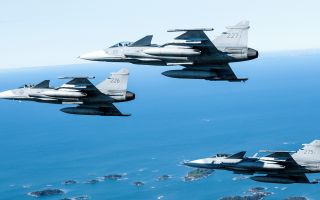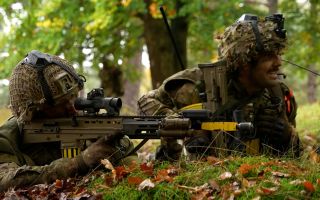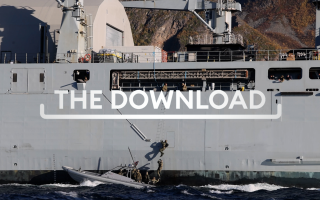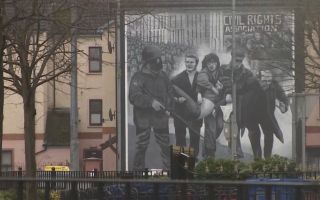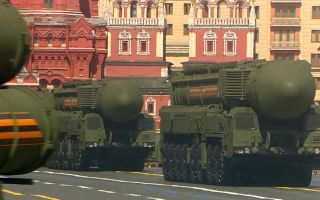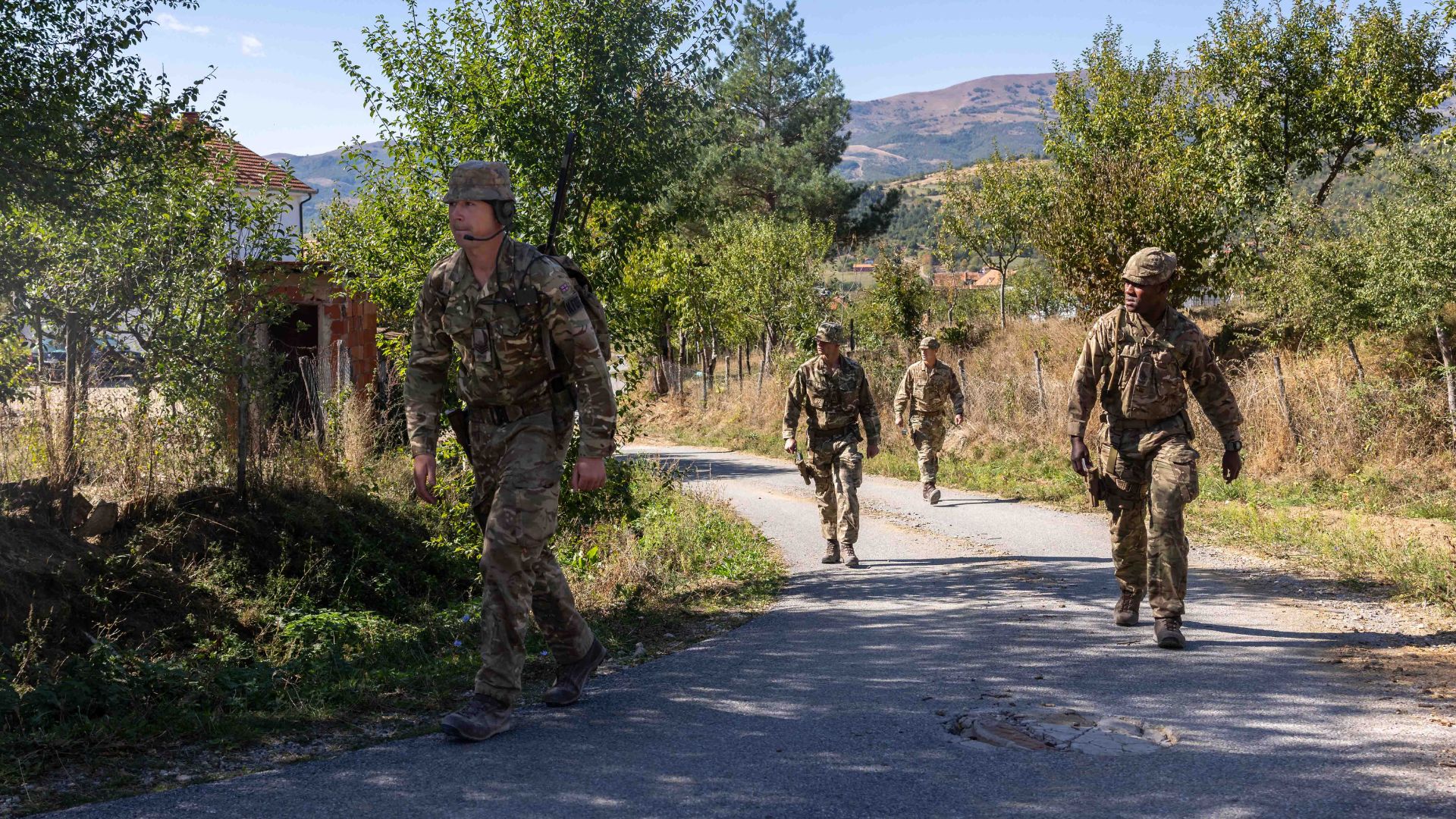
Keeping the peace: UK renews commitment to supporting Nato peacekeeping in Kosovo

The British Armed Forces will continue to support a Nato-led peacekeeping mission in Kosovo for at least another three years, the UK Government has announced.
The announcement comes as Prime Minister Sir Keir Starmer hosted the Western Balkans Leaders' Summit in London to discuss closer collaboration to tackle the shared challenge of irregular migration.
The renewed commitment centres around the UK's readiness to provide a reserve force of hundreds of soldiers to Nato's Kosovo Force (KFOR), deployable at short notice if needed.
The last major UK deployment to support the mission took place in 2023 after a violent attack against police in northern Kosovo.
Speaking at the summit, Sir Keir said: "The UK's commitment to peace and security in the Western Balkans is unwavering. By extending our support to Nato's Kosovo Force, we are demonstrating our role as a leading Nato ally and standing by our values of stability and democracy.
"Working closely with our partners in the Western Balkans is vital, not only for regional stability, but to ensure security here at home."
Peace and stability in the Western Balkans
KFOR was established in 1999 after Nato's 78-day air campaign against the Federal Republic of Yugoslavia, with the initial goal of preventing a humanitarian crisis in Kosovo.
Today, the peacekeeping mission continues to ensure a safe and secure environment and freedom of movement for all communities within the country.
Currently, around 4,500 troops from 33 Nato and partner countries serve in KFOR. Alongside the UK, contributing nations include Italy, Turkey, Poland, and the United States.
The extension of UK support to KFOR until at least December 2028 delivers on the government's 'Nato first' approach as set out in the Strategic Defence Review, while boosting security in the Western Balkans.
"Our troops have carried out hundreds of missions over the decades in support of KFOR, and this extension to our commitment will keep Kosovo and the Western Balkans safer," said Armed Forces Minister Al Carns.
"Peacekeeping is a critical component of our commitment to keep the UK secure at home and strong abroad, and I would like to thank the hundreds of British troops who remain ready to step up to keep the UK and Europe safe," he said.
Educating allies for lasting peace
British forces have played a key role in enhancing KFOR's Intelligence, Surveillance, and Reconnaissance (ISR) capabilities, significantly improving mission commanders' situational awareness – ensuring the operation can provide a safe and secure environment for the entire population.
The MOD is also preparing to launch a new training course targeted at Western Balkans nations that will start early next year.
It aims to strengthen understanding among defence and security organisations on issues surrounding the protection of civilian lives and promoting the role of women in defence.
Countries invited to participate include Albania, Bosnia and Herzegovina, Kosovo, Montenegro, North Macedonia, and Serbia.
This initiative is part of a wider UK effort to promote conflict prevention through education and regional cooperation.

